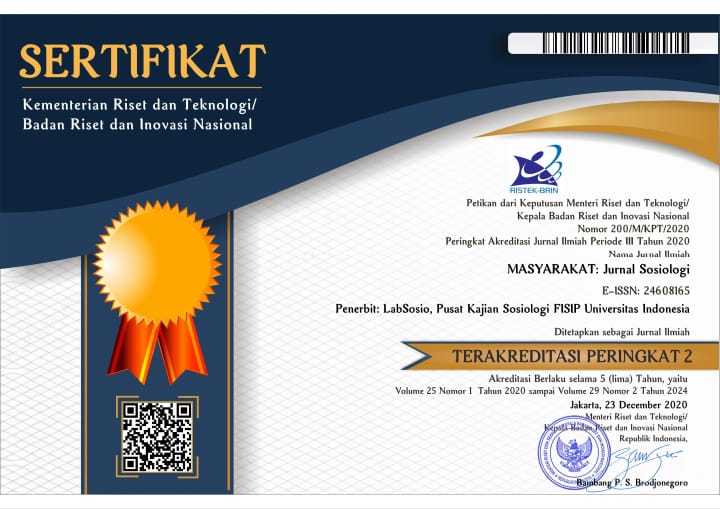Abstract
This article aims to illustrate that cultural reproduction is always in the interplay with politic and economic system within societal structure. Therefore, the effort to understand the meaning of cultural symbol has to be accompanied by the attempt to explore the political and economic interests that shape the cultural practices. The Yogyakarta people undoubtedly perceive religion practices as more than cultural practices. The article will demonstrate that dispute in religious matters have never become the main trigger of conflict between religious groups. In most cases, the tension is driven by the clash of political and economic interests between the dominant and non-dominant groups. Thus, acknowledging the political-economic interests helps us to understand the ways in which we can further promote religious tolerance while remain aware of the possibility to produce the counterproductive results.
Recommended Citation
Widya, Diatyka
(2010)
"Tradisi, Ekonomi-Politik, dan Toleransi Yogyakarta,"
Masyarakat: Jurnal Sosiologi: Vol. 15:
No.
2, Article 3.
DOI: 10.7454/MJS.v15i2.1195
Available at:
https://scholarhub.ui.ac.id/mjs/vol15/iss2/3
Included in
Asian Studies Commons, Other History Commons, Other Sociology Commons, Race and Ethnicity Commons, Sociology of Culture Commons, Work, Economy and Organizations Commons


